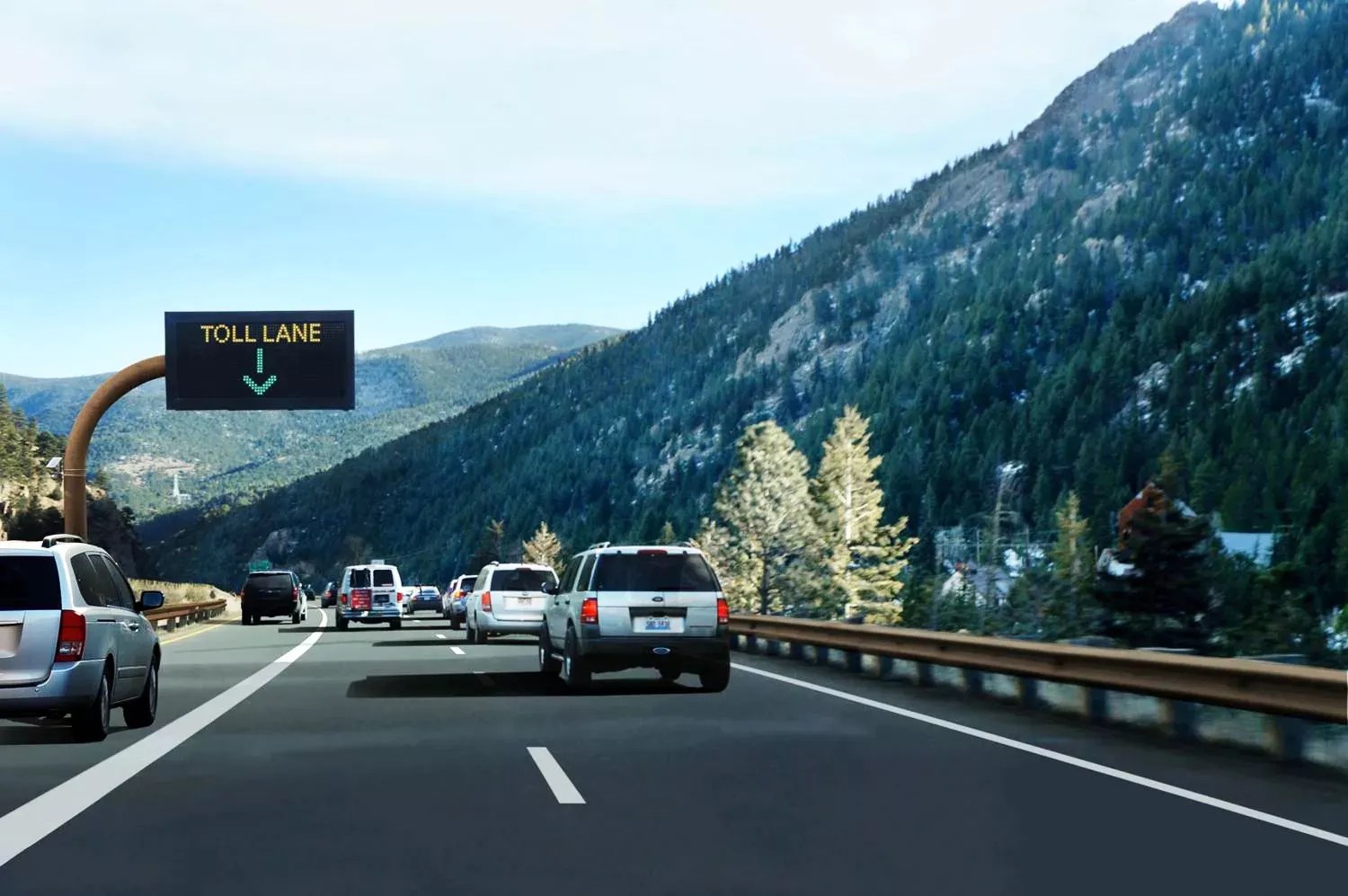
Colorado Department of Transportation

Audio By Carbonatix
Did you receive one of the 231,000 notices for violations on Colorado express lanes issued since last June? Odds are, you’re going to have to pay up.
From June 2023 through March 8, only 3,921 people successfully had their fines dismissed – just over 17.6 percent of the 22,216 people who tried disputing the citations – according to data from the Colorado Department of Transportation. Around 900 others are still awaiting hearings.
Drivers who cross the solid lines of express lanes on C-470, I-25 and the I-70 Mountain Corridor are hit with a $75 fine, doubling to $150 after twenty days without payment. For I-70, violations also include using the toll lane when closed or while driving an oversized vehicle. But almost all fines are issued for entering or exiting the lanes at non-designated areas, says CDOT spokesperson Tim Hoover.
Most Popular Excuses to Avoid Fines
Nearly half of the drivers who disputed their express lane violations gave the same excuse: “I was forced onto the express lane.” But fewer than one in five people who claimed to be forced into the lane got their fines dismissed. While it was the most popular defense, it was the third-least effective.
“We would review evidence and find that they were following too closely and when the car in front of them was braking, they swerved around them to get into the express lane,” Hoover says. “In some instances, we actually had people saying, ‘They just weren’t going fast enough, so I was forced into the express lane.’ That’s not how that works.”
Over 9,700 disputers claimed they were forced into the express lane. Of them, 1,848 successfully had their fines dismissed, including in instances when a collision occurred in front of them or first responders redirected traffic into the express lane. Most of the unsuccessful claims went more like this:
“I was forced to exit/enter the express lane due to nearby cars driving recklessly and under the minimum speed limit,” one driver wrote in a report disputing a fine. “The reckless driving caused me anxiety, and I wanted to remove myself from it.”
Why They Don’t Work
Hoover says the “forced into the express lane” option was so “widely misused” that the state removed it as a category in December. However, most of those arguments were just diverted to the general “other” category.
Another top excuse in the “other” category came from people arguing that they were not driving when their vehicle illegally crossed the express lane line. As it turns out, that doesn’t matter, either, because the state won’t accept it as a valid reason to get out of the fine.
“The owner is responsible,” Hoover explains. “We don’t know who is driving the car. We just know that the car committed a violation, you’re the owner, and you’re responsible for the violation. It’s like a parking ticket.”
Some of these disputers claimed they rented out their car using apps like Turo when the vehicle committed the violation. Others blamed their friends and family members.
“That was my birthday, which means it was my designated driver driving, not me,” one person wrote in their unsuccessful dispute. “I had no say in what she chose to do regarding the express lane.”
Most Common Failed Excuses
Overall, the least successful defense for those disputing their fines was “I have never owned this vehicle,” resulting in dismissed fines only 12.5 percent of the time. That was followed by “other,” with a 15.9 percent success rate and “I was forced into the express lane,” at 19 percent.
Other common failed excuses: It was an accident (“We were following Google Maps”); other people were doing it, too (“There are several cars driving in the express lane!”); I got confused (“It was dark and I panicked”); and I didn’t know there was a fine for that (“I’m new to Colorado”).
One disputer said the vehicle crossed the solid line because a passenger had to vomit -but “at least he was able to get the door open for most of it.”
Colorado’s first-of-its-kind enforcement program uses sensors and cameras to catch drivers who cross the solid lines of express lanes, whether they’re swerving in and out to avoid paying the toll or using the lane to pass another vehicle. Enforcement began in October for I-25 and C-470, and in June for the I-70 Mountain Corridor.
One Colorado driver has collected 75 violations, totaling $9,675 in fines, according to CDOT. Another driver has 72 violations. The penalties for these violations are civil, so they don’t come with any criminal charges or take points off a driver’s license. But if the fines go unpaid long enough, drivers can get a hold placed on their vehicle registration, making them unable to renew – though that hasn’t happened yet, plenty of vehicle owners have had to ante up.
“I frankly don’t understand how there hasn’t been a hold placed yet,” Hoover says of the drivers with over seventy violations.
As of March 3, the state has issued 231,357 notices of express lane violations: 106,245 on I-25, 97,376 on C-470 and 27,736 on the I-70 Mountain Corridor.
Some excuses actually work, often from situations much worse than a $75 fine. The top three were “The vehicle owner is dead,” with a 69.4 percent success rate; “The vehicle was stolen,” which worked 69.3 percent of the time; and “I no longer own this vehicle,” at 59.7 percent.